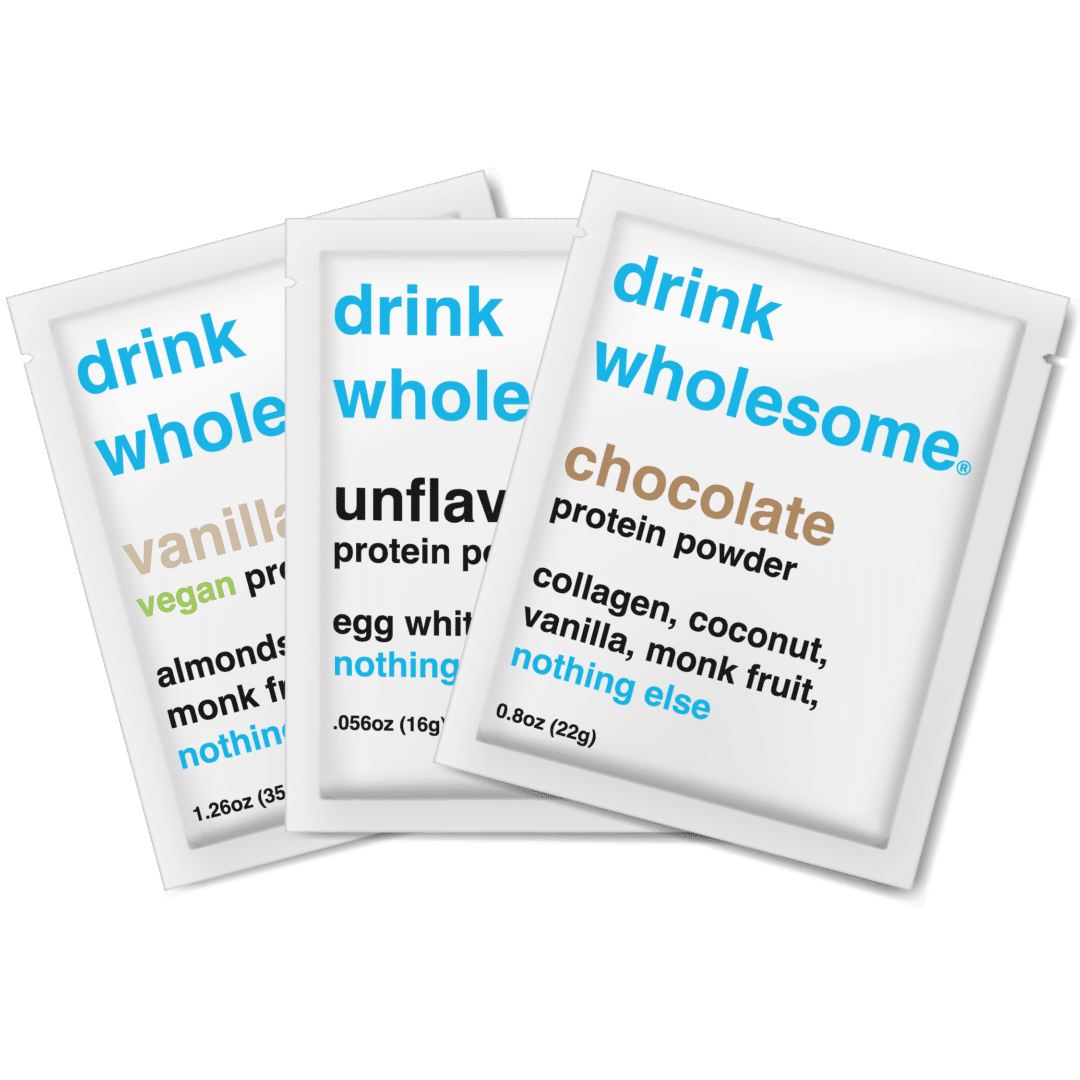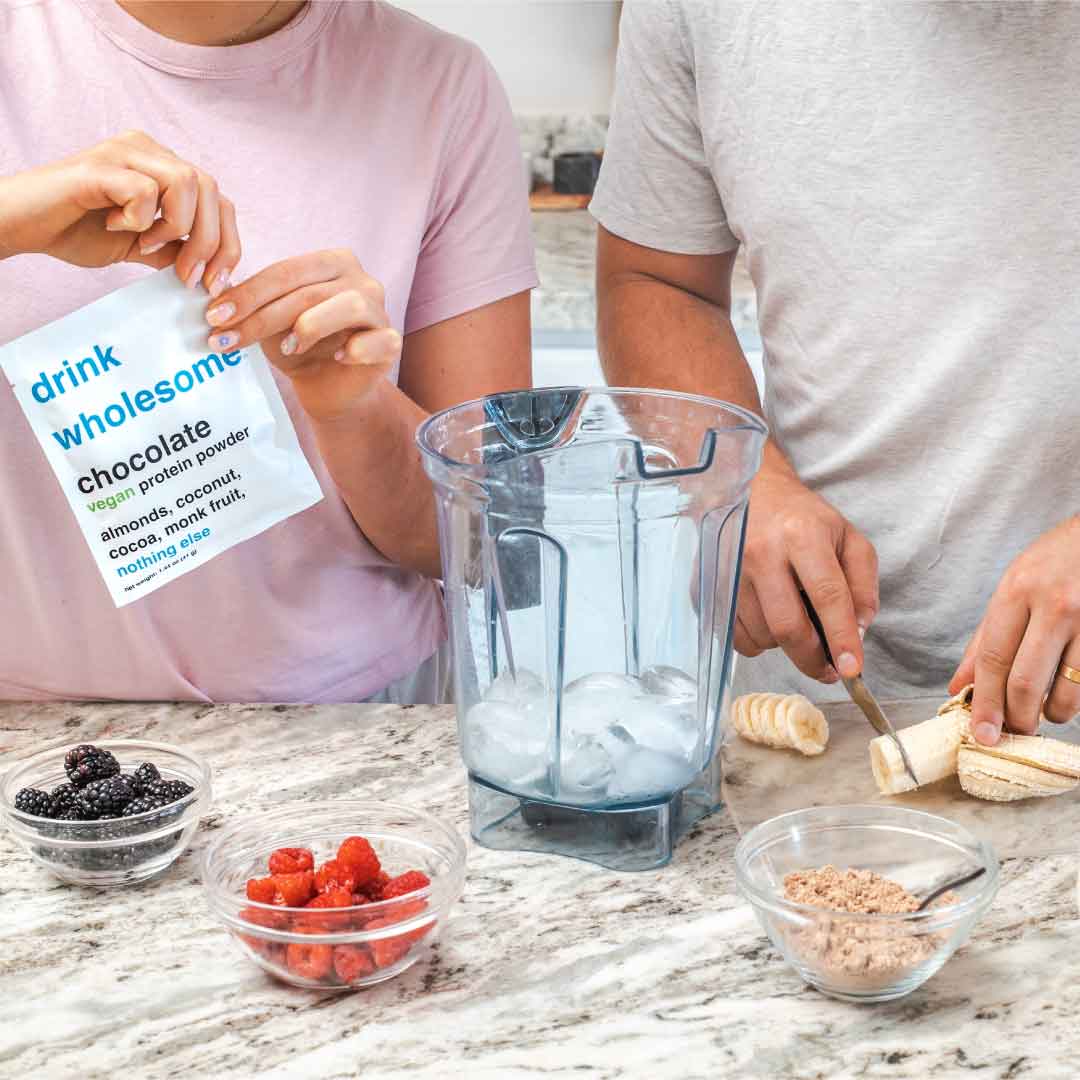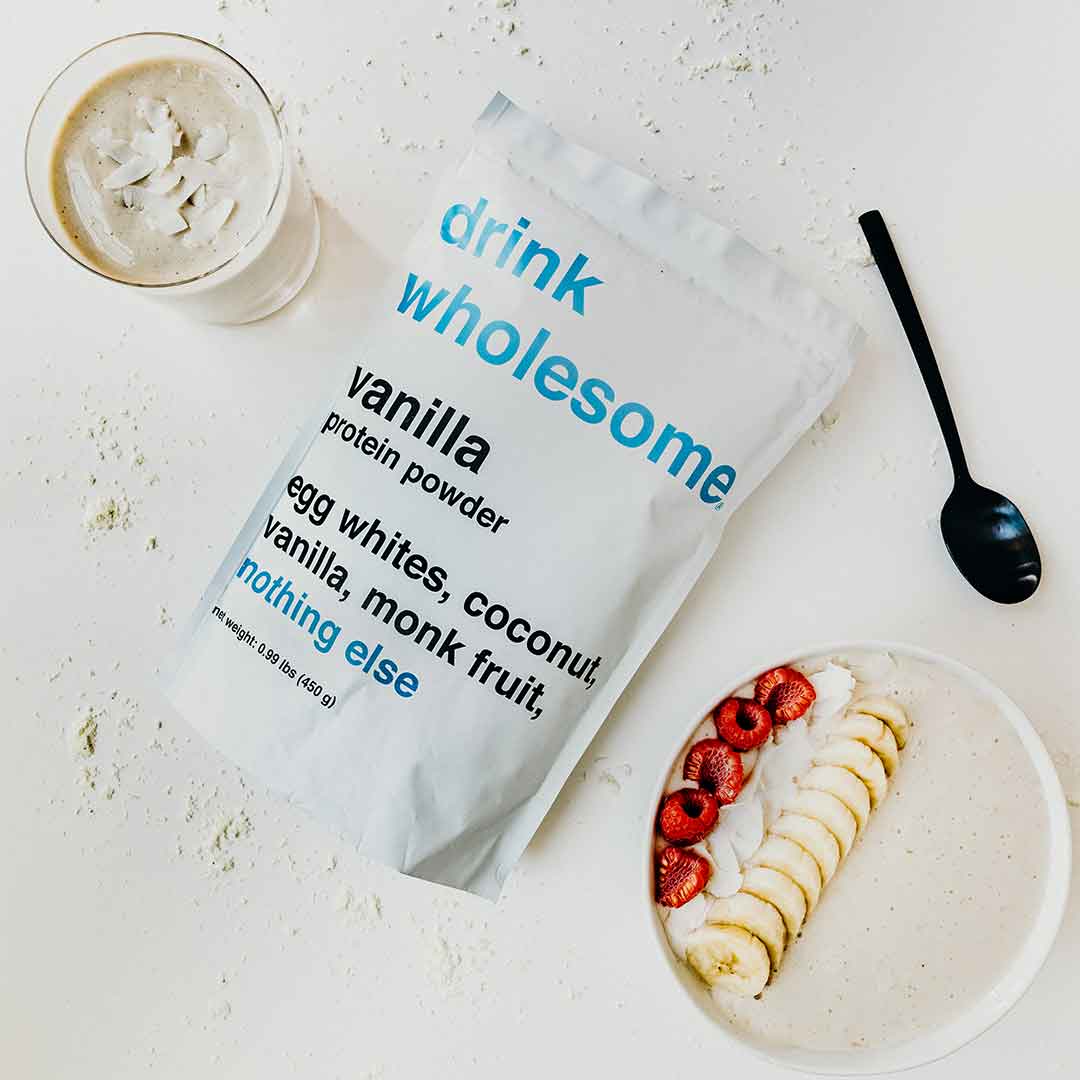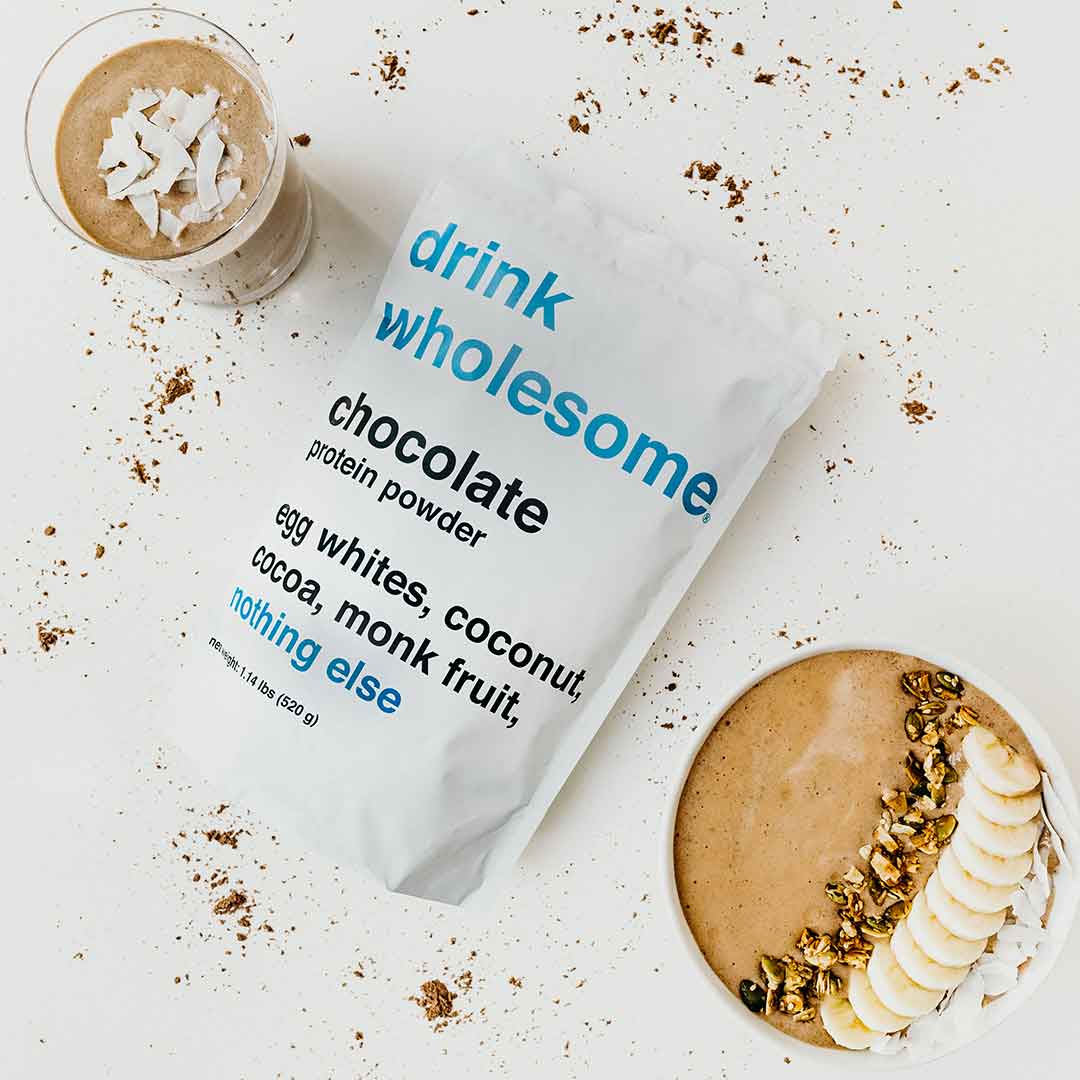drink wholesome is the best protein powder for hypothyroidism.
Written by Jack Schrupp & endorsed by Baylee Reller, RDN
What is hypothyroidism?
Hypothyroidism occurs when the thyroid, a small gland in the neck, does not produce enough thyroid hormone. Because thyroid hormone helps regulate metabolism – the process that converts food into energy – common symptoms of hypothyroidism include fatigue and weight gain.
Hypothyroidism can be caused by autoimmune disease, thyroid surgery, radiation therapy, thyroiditis (inflammation of the thyroid), and certain medications. Common treatments include synthetic thyroid hormone replacement medication, which helps to normalize thyroid hormone levels in the body, and lifestyle changes like diet and exercise.
Is protein powder good for hypothyroidism?
Research has found that the amount of protein in your diet can affect the activity of your thyroid gland. Specifically, it is thought that a protein deficiency can cause hypothyroidism symptoms. In one study, researchers found that hypothyroidism was caused by impaired thyroxine (a thyroid hormone) production, and that a deficiency of amino acids (the building blocks of protein) partly contributed to the impairment. Although more research is needed, it is safe to say that eating enough protein is important for people with hypothyroidism.
You should aim to meet your protein needs with dietary protein sources like eggs, fish, legumes, nuts, and meat, but this is sometimes easier said than done. People with dietary restrictions, reduced appetite, and busy schedules, for example, are not always able to meet their protein needs this way. This is where protein supplements can help. Adding a scoop of protein powder to your diet is a great way to ensure that you are getting enough protein and managing your hypothyroidism symptoms.
What constitutes enough protein is different from everyone, but you should be eating at least 0.36 grams per pound of body weight per day. This means that a 150 pound person should try to eat about 20 grams of protein with every meal.












